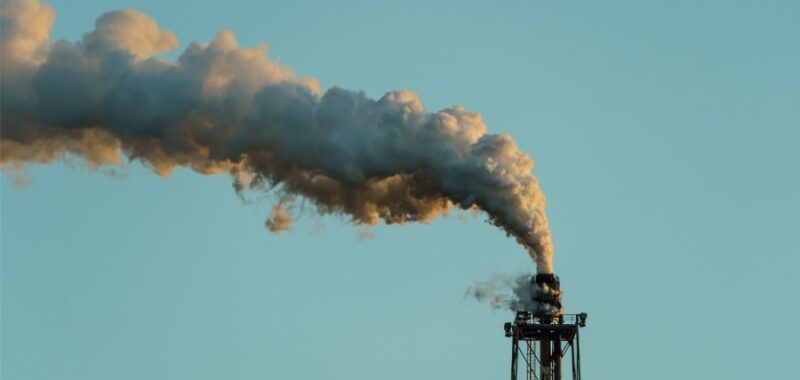
World governments are “fueling the fire” of a global health crisis with the trillions of dollars per year they direct toward subsidizing fossil fuels, according to findings published on Tuesday.
Research in The Lancet, one of the world’s leading medical journals, found that residents of every country on earth are facing the unnatural and unprecedented effects of a crisis the governments of wealthy nations are actively funding.
“This year’s stocktake of the imminent health threats of climate inaction reveals the most concerning findings yet in our eight years of monitoring,” warned Marina Romanello, executive director of Lancet Countdown, which for nearly a decade has tracked the globe’s progress on health and climate change.
The Lancet has long portrayed climate change as the leading threat to global public health, and Romanello said that the past year only reinforced that relationship.
“Once again, last year broke climate change records—with extreme heat waves, deadly weather events, and devastating wildfires affecting people around the world,” she said. “No individual or economy on the planet is immune from the health threats of climate change.”
Even as this threat looms, Romanello added, “we see financial resources continue to be invested in the very things that undermine our health.”
The year 2023 was the hottest on record, researchers noted. In practical terms, that meant that across the globe, the average person experienced 50 additional days — or nearly two months — of dangerous temperatures that would not have happened without decades of burning fossil fuels, the researchers found.
That rising heat also correlated with extreme drought — afflicting almost half of the global land area in 2023 — which correlated in turn with an additional 151 million people experiencing some form of food insecurity.
The heat also correlated with 512 billion hours of lost labor — a cost of nearly $1 trillion in GDP — that was borne disproportionately by the poorest countries.
Because hot air is thirstier — and therefore wetter — the rising heat has correlated with a rise in flood as well. Flood risks have increased over the last decade across two-thirds of the earth’s surface — a rise seen recently and dramatically in the unexpected, lethal flooding that Hurricane Helene brought to the mountain communities of the southeastern U.S.
The Lancet study noted that the rise in heat and standing water, in turn, have led to attendant risks of mosquito-borne illness like dengue fever — which hit record levels in 2023.
Amid a rising crisis — one which is outstripping the ability of all governments, but particularly lower-income ones, to adapt — the wealthy world is pursuing policies that are making things worse, the Lancet writers noted.
“The relentless expansion of fossil fuels and record-breaking greenhouse gas emissions compounds these dangerous health impacts,” Romanello said. Such a buildout “is threatening to reverse the limited progress made so far, and put a healthy future further out of reach.”
While investment in renewable energy is increasing — helping double the generation of clean electricity between 2016 and 2023 — the Lancet study found that investment in new fossil fuels still made up more than a third of new energy spending in 2023, and 84 percent of world governments still subsidize their use, in effect paying an estimated $1.4 trillion dollars per year to worsen the crisis.
Such support, in tandem with the high oil-sector profits that followed Russia’s 2022 invasion of Ukraine, helped the world’s 114 biggest oil and gas companies to push their production to record levels in 2023 — a production volume that the Lancet study found puts the maintenance of a safe climate out of reach.
The Lancet authors called for redirecting the money governments are now using to subsidize fossil fuels toward public health initiatives, which Romanello said “would provide the opportunity to deliver a fair, equitable transition to clean energy and energy efficiency, and a healthier future, ultimately benefiting the global economy.”
Researchers pointed to some signs that indicate progress is possible, like the rise in clean energy generation and the record employment in the renewable sector, as well as the hundreds of thousands of lives saved as reductions in coal-burning have led to cleaner and less toxic air.
U.N. Secretary General Antonio Guterres offered a scathing response to the findings and called on world governments to cure “the sickness of climate inaction,” in particular by “slashing emissions, protecting people from climate extremes, and ending our fossil fuel addiction.”

